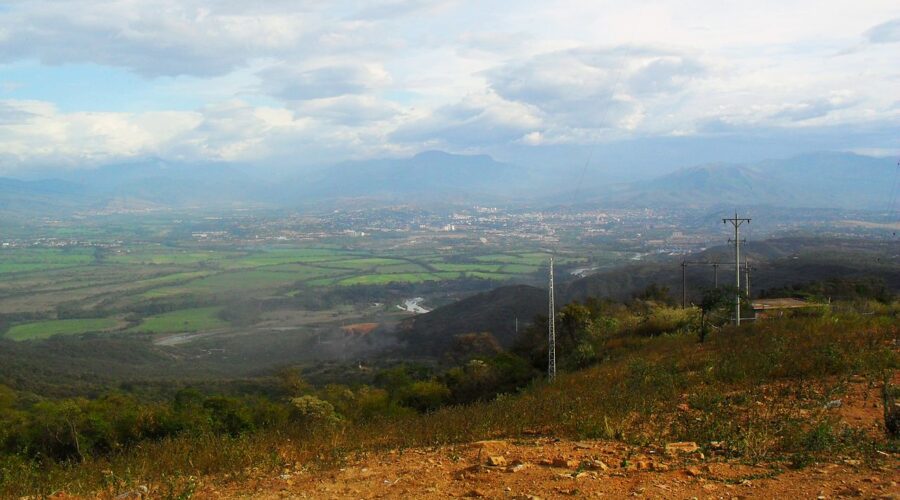With a new president in Colombia, who has political ideologies closer to Maduro’s, a way was opened for the recovery of communications between Bogota and Caracas, which had been interrupted three years ago.
Although this has been the longest break in communications, it is not the only precedent. The differences date back to 1999 when Chávez had just assumed office. Over the years, the status of relations has changed from time to time, with good moments of cooperation and a later rupture due to disagreements in the way of proceeding.
The consequences for the populations
The people of both countries have been profoundly affected by these political disagreements. With the closing of the border seven years ago, many Colombians and Venezuelans who live between the two countries have seen their daily life change: with the increase of illegal armed groups, black markets and illegal border crossings.
Venezuelans and Colombians share economic, social and cultural ties and a 2,200-kilometer border. Throughout history, the inhabitants of border towns have worked, resided, studied and had family life between the two countries. The closure distorted their lives.
At the height of the tension, crosswalks were also closed and border residents —and Venezuelans trying to leave the country— had to risk their lives crossing through illegal paths across the river.
The reopening of flights
Not only were the embassies of both countries closed, but also the land and air borders. Until recently, to travel to Colombia from Venezuela by plane, it was necessary to make a connection in Panama, which increased the costs and hours of flying, unnecessary for countries so close geographically.
The announcement of the opening of the land and air border was made in September, a few weeks after the reestablishment of diplomatic relations. The chosen start date was September 26, ending isolation and initiating a change in personal and commercial connections.
Colombian President Gustavo Petro confirmed the commitment to fraternity. Meanwhile, the Colombian ambassador in Caracas, Armando Benedetti, announced the incorporation of five airlines that would operate the Bogota-Caracas and Bogota-Valencia routes.

Re-establishing the historical bond
This act seems to leave behind old disputes that kept them isolated since the former Colombian president, Iván Duque, recognized Juan Guaidó as interim president of Venezuela. This approach by Petro provides oxygen to Maduro’s government, who had no longer been recognized by 50 countries, including Colombia.
The first meeting between the ambassador and Maduro — at the Miraflores Palace in Caracas — took place in August, after years of disagreements. At the meeting they discussed the urgency of re-establishing ties. Meanwhile, the new Venezuelan ambassador to Colombia also arrived in Bogota to help with the engagements. Both countries had recalled their ambassadors in 2019, amid tensions between Maduro and Duque.
Colombia’s approach
In recent years, Colombia has received a large number of Venezuelans who saw an opportunity in the neighboring country to improve their quality of life. In addition, Colombia has offered asylum to many people who fled due to political situations. Colombia’s new president has said that he will not extradite Venezuelans, which generates relief for residents who cannot return to Venezuela due to persecution.
However, the decision that may be taken is the withdrawal of the complaint filed by former president Duque in the International Criminal Court, due to the students killed during street protests in Venezuela.
One of the incentives for both governments is the reopening of trade agreements. Maduro’s government could benefit in the midst of the biggest economic crisis Venezuela has experienced in recent history. One of the negotiations proposed by Maduro is linked to domestic gas, however, Venezuela has serious problems supplying their own people.
In the peace negotiations
Another interest for Petro involves the peace agreements he intends to reach with the ELN. To this end, Petro has asked Maduro to be a guarantor during the negotiation, being a key piece in reaching an agreement.
The reestablishment of relations marks another point in the history of both countries. The process will take time, as it is not simple to bring back to ‘normalcy’ the deteriorated reality of the borders, where criminality has dominated for years.
Prior history is not very encouraging. In 2015, Maduro closed the border, allegedly due to a campaign against smuggling. Meanwhile 1500 Colombians were deported and approximately 20 thousand Colombians fled Venezuela for fear of Maduro’s measures. At that point another diplomatic crisis between the two countries took place.
Images: EEIM and Voice of America

